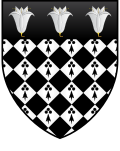| Main page | Indices | Projects |
The University of Oxford portal
The University of Oxford is a collegiate research university in Oxford, England. There is evidence of teaching as early as 1096, making it the oldest university in the English-speaking world and the world's second-oldest university in continuous operation. It grew rapidly from 1167, when Henry II banned English students from attending the University of Paris. After disputes between students and Oxford townsfolk in 1209, some academics fled north-east to Cambridge where they established what became the University of Cambridge. The two English ancient universities share many common features and are jointly referred to as Oxbridge.
The University of Oxford is made up of 43 colleges, consisting of 36 semi-autonomous constituent colleges, four permanent private halls and three societies (colleges that are departments of the university, without their own royal charter), and a range of academic departments which are organised into four divisions. Each college is a self-governing institution within the university, controlling its own membership and having its own internal structure and activities. All students are members of a college. The university does not have a main campus, but its buildings and facilities are scattered throughout the city centre. Undergraduate teaching at Oxford consists of lectures, small-group tutorials at the colleges and halls, seminars, laboratory work and occasionally further tutorials provided by the central university faculties and departments. Postgraduate teaching is provided in a predominantly centralised fashion.
Oxford operates the Ashmolean Museum, the world's oldest university museum; Oxford University Press, the largest university press in the world; and the largest academic library system nationwide. In the fiscal year ending 31 July 2023, the university had a total consolidated income of £2.92 billion, of which £789 million was from research grants and contracts.
Oxford has educated a wide range of notable alumni, including 30 prime ministers of the United Kingdom and many heads of state and government around the world. 73 Nobel Prize laureates, 4 Fields Medalists, and 6 Turing Award winners have matriculated, worked, or held visiting fellowships at the University of Oxford, while its alumni have won 160 Olympic medals. Oxford is the home of numerous scholarships, including the Rhodes Scholarship, one of the oldest international graduate scholarship programmes. (Full article...)
Selected article
The election in 1860 for the position of Boden Professor of Sanskrit was a hotly contested affair between two rival candidates offering different approaches to Sanskrit scholarship: Monier Williams (pictured), an Oxford-educated Englishman, and Max Müller, a German-born lecturer specialising in comparative philology, the science of language. Both men battled for the votes of the electorate (the Convocation of the university) through manifestos and newspaper correspondence. The election came at a time of public debate about Britain's role in India particularly after the Indian Mutiny of 1857–58. Although generally regarded as the superior to Williams in scholarship, Müller had the double disadvantage (in the eyes of some) of being German and having liberal Christian views. At the end of the hard-fought campaign, Williams won by a majority of over 230 votes, and held the chair until his death in 1899. Müller, although deeply disappointed by his defeat, remained in Oxford for the rest of his career, but never taught Sanskrit there. (Full article...)
Selected biography
Selected college or hall
Magdalen College was founded in 1458 by William of Waynflete, Bishop of Winchester. It stands to the east of the city centre next to the River Cherwell, which is crossed by Magdalen Bridge. Its extensive grounds include a deer park and meadows alongside the river. By tradition, the college choir (which consists of 12 students from the college and 16 boys from Magdalen College School) sings madrigals from the top of Magdalen Tower at 6am on May Morning. The tower, built between 1492 and 1509, is a landmark at the east of the city. The President is the chemist David Clary. There are about 400 undergraduates and 185 postgraduates. Former students include the politicians William Hague and George Osborne (appointed Foreign Secretary and Chancellor of the Exchequer respectively in 2010), the poets Oscar Wilde and John Betjeman, the judges Lord Denning and Lord Browne-Wilkinson and the editor of Private Eye, Ian Hislop. The Fellows of Magdalen include the holders of the four Waynflete Professorships; the novelist and Christian writer C. S. Lewis was a fellow for nearly 30 years. (Full article...)
Selected image

Did you know
Articles from Wikipedia's "Did You Know" archives about the university and people associated with it:
- ... that the Scots American War Memorial (detail pictured) has a poetic line by Ewan Mackintosh who was killed while observing fighting at Cambrai?
- ... that William David Davies was the first Welsh non-conformist to obtain a Bachelor of Divinity degree from Oxford?
- ... that former Gloucestershire cricket captain Sir Derrick Bailey founded an airline and based the colour of its planes on the racing colours of his South African father?
- ... that English mathematician and geographer Robert Hues served his master Thomas Grey, the last Baron Grey de Wilton, while Grey was imprisoned in the Tower of London?
- ... that Rev William Cotton, vicar of Frodsham, Cheshire, introduced the skills of beekeeping to New Zealand in the 1840s?
Selected quotation
Selected panorama
Wikimedia
The following Wikimedia Foundation sister projects provide more on this subject:
-
 Commons
Commons
Free media repository -
 Wikibooks
Wikibooks
Free textbooks and manuals -
 Wikidata
Wikidata
Free knowledge base -
 Wikinews
Wikinews
Free-content news -
 Wikiquote
Wikiquote
Collection of quotations -
 Wikisource
Wikisource
Free-content library -
 Wikiversity
Wikiversity
Free learning tools -
 Wikivoyage
Wikivoyage
Free travel guide -
 Wiktionary
Wiktionary
Dictionary and thesaurus








Recent Comments